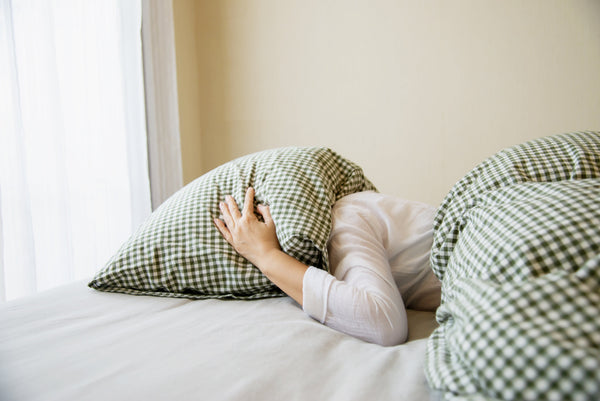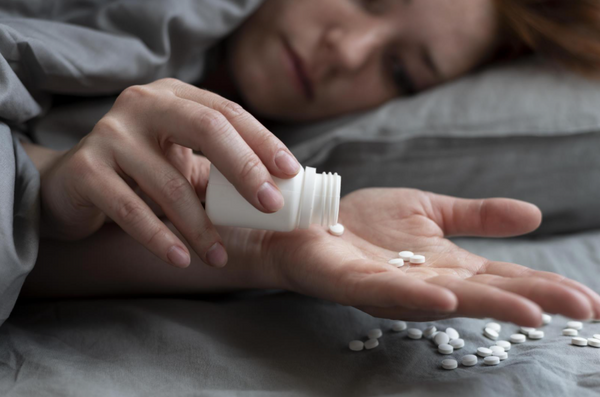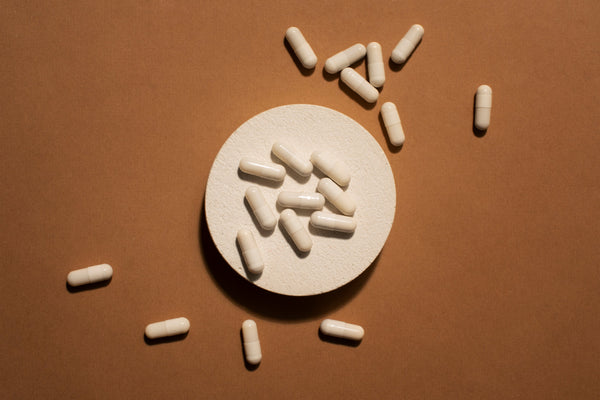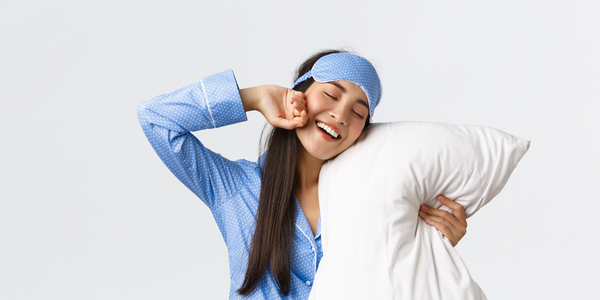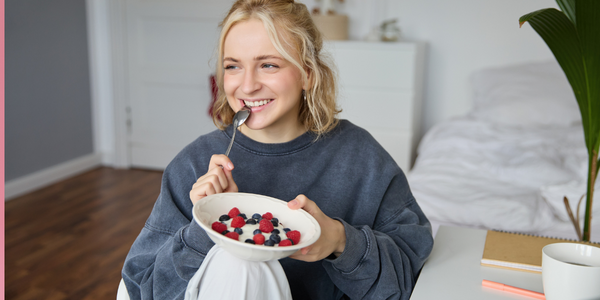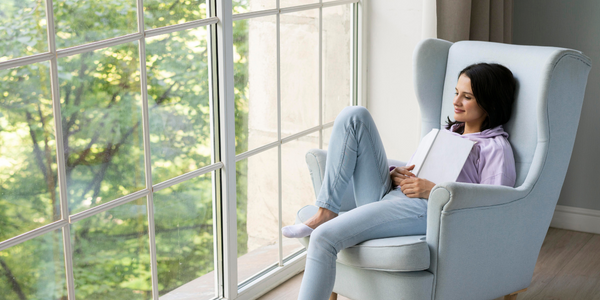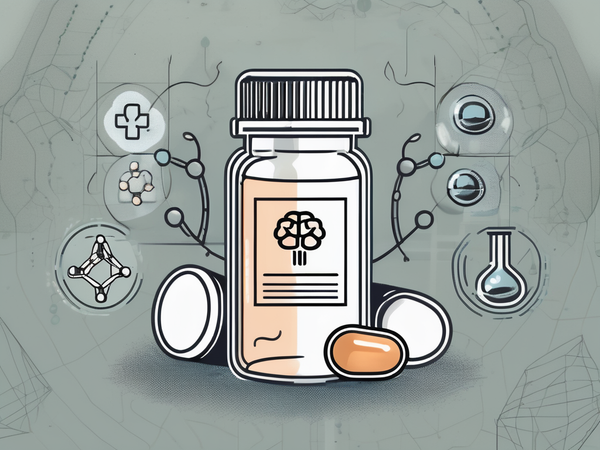Ever experienced that feeling of your heart beating faster in response to a stressful situation? Or perhaps, your palms getting sweaty when you’re confronted with an overwhelming task or event.
That’s anxiety — our body’s natural response to stress.
Everyone has different triggers, and identifying them is one of the most important steps to coping with and managing anxiety attacks. While some occasional anxiety about what’s going to happen next, an upcoming challenge, and pressure to do well in an exam or interview are normal, being continuously anxious can affect your overall health.
Consistent feelings of anxiety can prove to be unhealthy and even start to affect the quality of your life & prevent you from working efficiently. However, fortunately, you can deal with it.
Want to know how? Read along. This blog talks about six practical things you can do to help with anxiety. Along with that, you’ll find some reliable supplements for anxiety relief. So read in full.
Symptoms of Anxiety
Common anxiety symptoms include: -
-
Trembling
-
Sweating
-
Obsessively thinking about a panic attack
-
Feeling of helplessness
-
Hyperventilation
-
Increased Heart rate
-
Nervousness
You must consult your health care provider in case the symptoms go out of hand or start affecting your relationships, work performance, and overall health.
While extreme anxiety disorders demand proper medical treatment, lifestyle changes, coping strategies, and certain things can also prove to be helpful in anxiety management. Let’s find out more about them.
6 Things You Can Do To Resolve Anxiety
1. Practice Mindfulness
Mindfulness is a way of living that helps you face your fear and live life fully, irrespective of what the future hold for you. Mindfulness is just the exact opposite of anxiety. People with anxiety can’t stop worrying. Whereas with mindfulness, you will be able to improve focus in life and reduce anxiety without the need for any medication.
One of the techniques of mindfulness involves focusing on several things you can experience with your senses. It will help switch your attention away from the worries and fears and enjoy the moment.
2. Keep Yourself Physically Active
Try to develop a routine that allows you to be physically active most days of the week.
Physical exercise is one of the best ways of reducing stress and anxiety. It acts like a mood booster and eases depression and anxiety by releasing endorphins which are the chemicals in the brain that act as natural painkillers and reduces stress.
Science has also provided some evidence that physically active people have lower rates of anxiety and depression than sedentary people. Exercise may improve mental health by helping the brain cope better with stress. In one study, researchers found that those who got regular vigorous exercise were 25 percent less likely to develop depression or an anxiety disorder over the next five years.
3. Practice Focused Deep Breathing
Breathing is more important than you think. Short breaths can cause a negative feeling in your body that will lead to stress and anxiety. So, try to control your breathing. Try breathing in for 4 counts and breathing out for 4 counts as by evening out your breath, you’ll slow your heart rate which should help calm you down. The 4-7-8 technique is also known to help anxiety.
So, whenever you feel anxious, fearful, or start to overthink about something, start taking deep long breaths. It will help you relax your mind and your body.
4. Avoid Triggers (Alcohol, Caffeine etc.)
Excessive consumption of alcohol and caffeine can make it even more difficult to cope with your anxiety and stress, worsening the situation. Consuming alcohol in high amounts might lead to greater alcohol dependence, blackout, brain damage, etc., which will only increase your anxiety and stress.
Excessive caffeine consumption can lead to symptoms similar to psychiatric conditions including sleep and anxiety disorders, increasing hostility, anxiety, and psychotic symptoms.
5. Aromatherapy
If you are looking for something to help you with anxiety and stress, you might want to consider aromatherapy. It is a well-known treatment that involves the usage of essential oils to provide relief.
According to the experts, when inhaled, the scent of the molecules from the essential oils travels to the olfactory nerves directly to the brain and impacts the amygdala, playing a huge role in easing anxiety and stress.
The essential oils also impact the hypothalamus. It helps in producing feel-good brain chemicals like serotonin. You can use the oils on your skin by diffusing them with a carrier. Try an inhaler stick or just put a few drops in the diffuser and enjoy the healing effects.
6. Ask The Expert
There is nothing wrong with knowing and understanding about your disorder. Get in touch with your health care provider to find out the root cause of your anxiety and the specific treatments that can help cope with it.
A mental health professional or counsellor can help with simplifying the process of identifying your triggers, maintaining long-term strategies through behavioral therapy, medications, and more. Once you learn about those triggers, you set strategies to help resolve them.
7. Bonus: Anxiety Supplements
Taking supplements to ease or relieve anxiety symptoms is a part of long term approach which needs to be followed along with proper diet and lifestyle modification.
According to research, supplements that consist of vitamins, minerals, omega-3 fatty acids, lemon balm, green tea, valerian root etc. can be effective in reducing anxiety. Calm and Relaxation is one of the best-rated supplements for anxiety.
What Is Calm and Relaxation, And How Is It Beneficial?
Calm and Relaxation is a clinically proven and fast-acting melts curated to relieve symptoms of stress and anxiety. It is a plant-based, highly bioavailable, mind-relaxing blend that soothes the mind, releases tension, supports positive mood and provides peace of mind.
With plant-based Suntheanine® a clinically researched & patented form of L-theanine (10x more powerful) that helps reduce anxiety and mood imbalances, Chamomile for increasing the serotonin and melatonin levels in the body, and magnesium for improving the mental focus.
Saffron, with its rich antioxidants, helps in boosting mood and relaxing mind, Lemon Balm enriched with Rosmarinic acid that helps improve cognitive functions and regain your focus. All ingredients collectively help reduce stress which in turn balances the cortisol levels.
This delicious mango flavor strip dissolves instantly when placed on the tongue for immediate action.
Final Takeaway
Most things that cause anxiety and stress can be managed with correct lifestyle modifications. However, if you keep holding on to them, think about them every time, and get anxious and stressed out, things might get out of hand.
Do not hesitate to seek professional help if anxiety is negatively impacting your productivity and daily lifestyle. To begin with, incorporate these simple tips or a good supplement like Calm and Relaxation would be really helpful for you.
References
-
Chand SP, Marwaha R. Anxiety. [Updated 2022 May 8]. In: StatPearls [Internet]. Treasure Island (FL): StatPearls Publishing; 2022 Jan-. Available from: https://www.ncbi.nlm.nih.gov/books/NBK470361/
-
Barati F, Nasiri A, Akbari N, Sharifzadeh G. The Effect of Aromatherapy on Anxiety in Patients. Nephrourol Mon. 2016 Jul 31;8(5):e38347. doi: 10.5812/numonthly.38347. PMID: 27878109; PMCID: PMC5111093. https://www.ncbi.nlm.nih.gov/pmc/articles/PMC5111093/
-
Kandola A, Stubbs B. Exercise and Anxiety. Adv Exp Med Biol. 2020;1228:345-352. doi: 10.1007/978-981-15-1792-1_23. PMID: 32342469. https://pubmed.ncbi.nlm.nih.gov/32342469/
-
Smith JP, Randall CL. Anxiety and alcohol use disorders: comorbidity and treatment considerations. Alcohol Res. 2012;34(4):414-31. PMID: 23584108; PMCID: PMC3860396. https://www.ncbi.nlm.nih.gov/pmc/articles/PMC3860396/
-
Hoane MR. The role of magnesium therapy in learning and memory. In: Vink R, Nechifor M, editors. Magnesium in the Central Nervous System [Internet]. Adelaide (AU): University of Adelaide Press; 2011. Available from: https://www.ncbi.nlm.nih.gov/books/NBK507270/
-
Hofmann SG, Sawyer AT, Witt AA, Oh D. The effect of mindfulness-based therapy on anxiety and depression: A meta-analytic review. J Consult Clin Psychol. 2010 Apr;78(2):169-83. doi: 10.1037/a0018555. PMID: 20350028; PMCID: MC2848393. https://www.ncbi.nlm.nih.gov/pmc/articles/PMC2848393/













